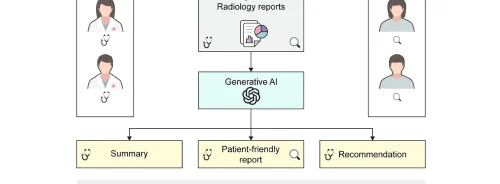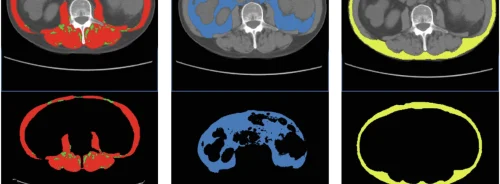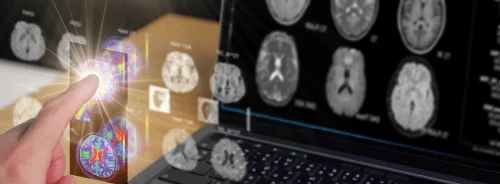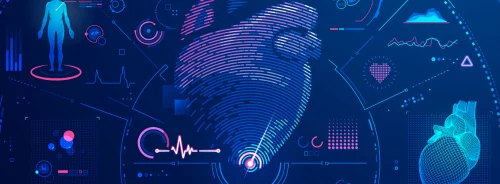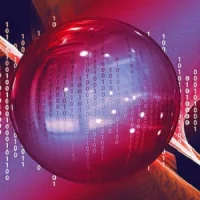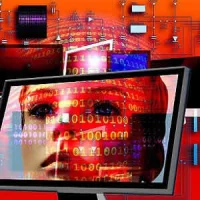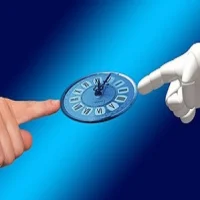Artificial intelligence continues to further automate the practice of medicine, raising concerns that machine-learning systems will put medical professionals out of work. But AI systems are there to "augment" the professionals, offering them expertise and assistance, and not to replace them, according to an article in The New Yorker.
See Also: Artificial Intelligence Virtual Radiology Consultant
Written by Siddhartha Mukherjee, MD, DPhil, assistant professor of medicine at Columbia University Medical Center, the article describes how "deep learning" systems have outperformed human experts in some trials.
Automating Diagnosis
In mammography, “computer-aided detection” is becoming commonplace. Pattern-recognition software highlights suspicious areas, and radiologists review the results. The recognition software typically uses a rule-based system to identify a suspicious lesion. Such programs have no built-in mechanism to learn: a machine that has seen three thousand x-rays is no wiser than one that has seen just four.
"One might have expected the accuracy of diagnosis to have increased dramatically after the [computer-aided diagnostic] devices had been implemented. As it happens, the devices had a complicated effect. The rate of biopsies shot up in the computer-assisted group. Yet the detection of small, invasive breast cancers — the kind that oncologists are most keen to detect — decreased," writes the author.
Computer scientists improved on these first-generation diagnostic devices by moving away from rule-based algorithms to learning-based ones. Learning algorithms involve a computing strategy known as a “neural network,” because it’s inspired by a model of how the brain functions. The more powerful devices have something akin to layers of neurons, each processing the input data and sending the results up to the next layer. Hence, “deep learning.”
Deep-learning Systems and Diagnostic Radiology
Deep-learning systems for breast and heart imaging have already been developed commercially. Geoffrey Hinton, a computer scientist at the University of Toronto, thinks that "deep learning is going to do better than radiologists.” However, Angela Lignelli-Dipple, the chief of neuroradiology at Columbia University Medical Center, points out that diagnostic radiologists aren’t merely engaged in yes-no classification. "They’re not just locating the embolism that brought on a stroke. They’re noticing the small bleed elsewhere that might make it disastrous to use a clot-busting drug; they’re picking up on an unexpected, maybe still asymptomatic tumour," Dr. Lignelli-Dipple explains.
Some of the most ambitious versions of diagnostic machine-learning algorithms seek to integrate natural-language processing (permitting them to read a patient’s medical records) and an encyclopedic knowledge of medical conditions gleaned from textbooks, journals, and medical databases. Both IBM’s Watson Health, headquartered in Cambridge, Massachusetts, and DeepMind, in London, hope to create such comprehensive systems.
“A deep-learning system doesn’t have any explanatory power,” Hinton says. “The more powerful the deep-learning system becomes, the more opaque it can become. As more features are extracted, the diagnosis becomes increasingly accurate. Why these features were extracted out of millions of other features, however, remains an unanswerable question.” The algorithm can solve a case. It cannot build a case.
Machines Not Replacing Human Diagnosticians
The industrial revolution amplified the power of human muscle. The cognitive revolution will allow computers to amplify the capacity of the human mind in the same manner, according to computer scientist Sebastian Thrun. "Just as machines made human muscles a thousand times stronger, machines will make the human brain a thousand times more powerful," he says, adding that these deep-learning devices will not replace radiologists. Thrun was formerly a professor at Stanford, where he directed the Artificial Intelligence Lab.
Source: The New Yorker
Image Credit: Pixabay
Latest Articles
Artificial Intelligence, Human Diagnosticians, machine-learning systems, human brain
Artificial intelligence continues to further automate the practice of medicine, raising concerns that machine-learning systems will put medical professionals out of work. But AI systems are there to "augment" the professionals, offering them expertise and

